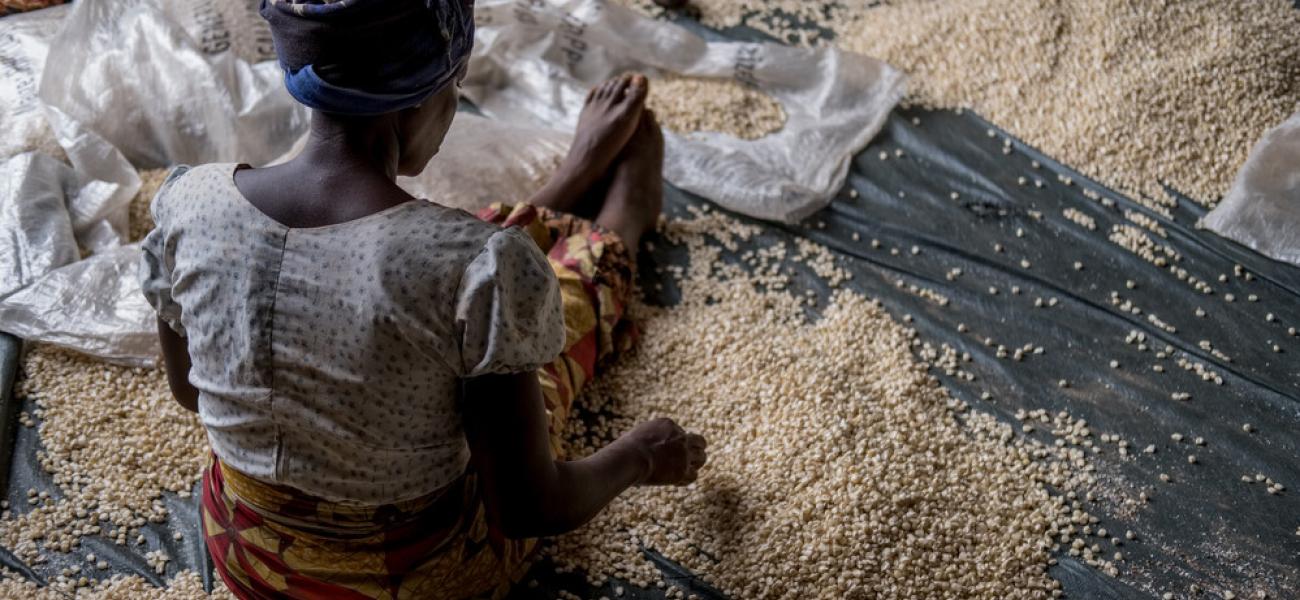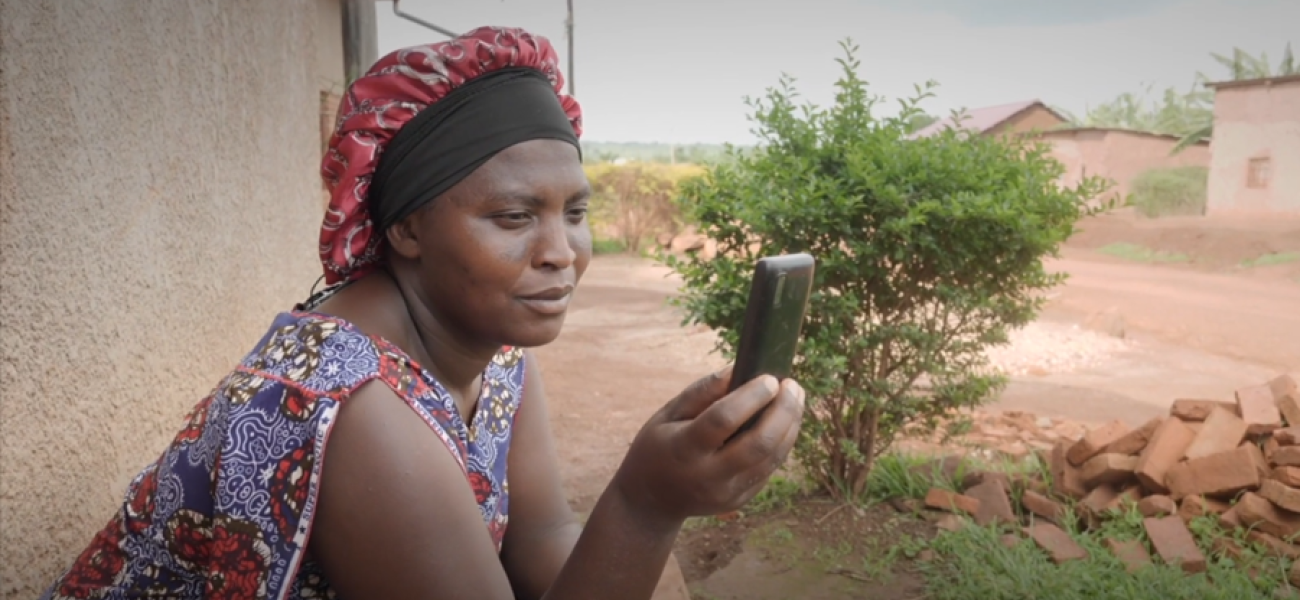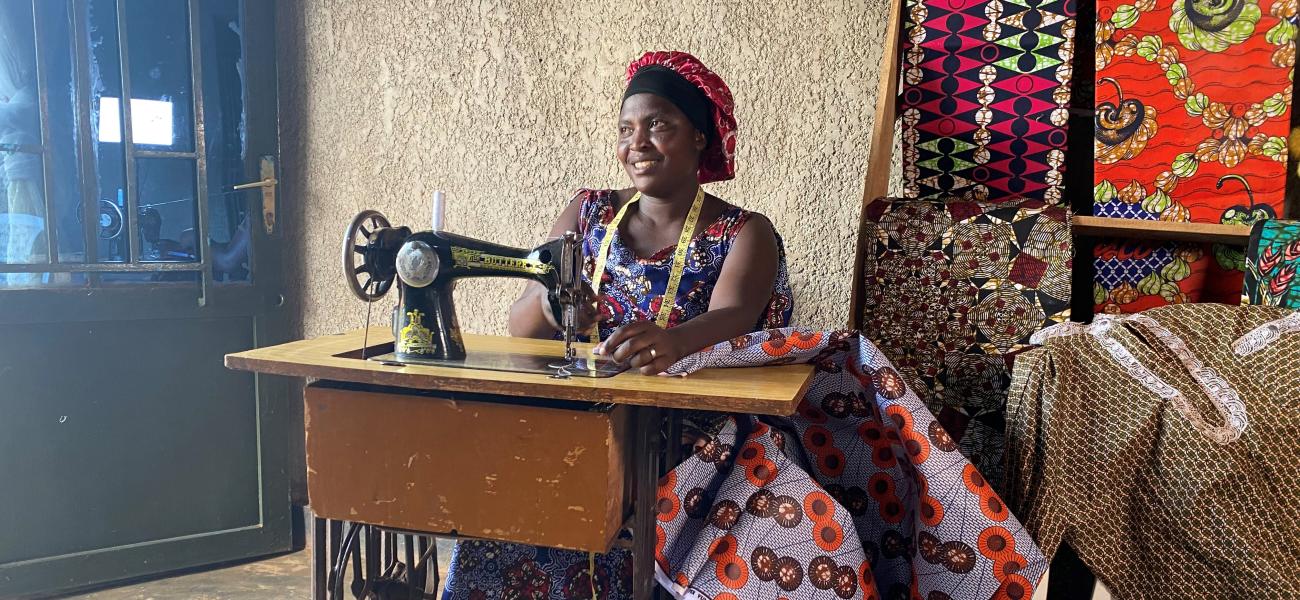When Chantal saw that pests were starting to damage her precious maize crop, she knew where to turn for help. She pulled out her phone and dialled 845.
“Through the toll-free number 845, we receive training without having to stop working,” she says. “You are prompted to press different numbers according to the training you want to take.”
By accessing one of eight trainings available on the automated helpline, Chantal learned how to identify the pests that were damaging her crops, as well as the right pesticides to use and how to apply them safely.
Chantal isn’t the only one to have benefited from the helpline. As part of the Imirasire Cooperative in eastern Rwanda, she has seen the other 30 members also access advice they need to increase their yield. And as the cooperative's secretary, she has seen their finances improve in unprecedented ways.
Solutions for dry spells
Established in 2018, the Imirasire Cooperative leases land from the government to grow maize, soya and vegetables. In the lush, green hills of eastern Rwanda, farmers could once expect three crops a year. But as droughts became more frequent, Chantal struggled to nourish her crops with enough water, using basins and saucepans for irrigation.
Although the cooperative provided subsidized food to its members in difficult times, hardship came more often and cast an uncertain shadow over the future.
Two years ago, the cooperative members learned about STARLIT, a US$483,470 initiative funded by the China-IFAD SSTC Facility to build the resilience of small-scale farmers in Kenya and Rwanda. For the cooperative, this couldn’t have come at a better time.
Through STARLIT, Chantal and her fellow farmers have been able to turn their lives around. They can access farming extension services in their language at any time without having to leave their businesses, simply calling the 845 helpline to reach an interactive voice response system developed by VIAMO and approved by the Rwanda Agricultural Board.
STARLIT also connected the cooperative with financial institutions, enabling them to access small loans for solar-powered irrigation facilities so that their fields stay watered even during dry periods.

Finding new frontiers
With Chantal's boosted income from farming, she has been able to realize her dream of a second business. After covering her three children's school fees and health insurance and buying a new field where she grows banana trees, Chantal made a purchase that she waited 20 years for: a sewing machine. Now, she earns extra income making clothes for local women.
Meanwhile, Claude, the Imirasire Cooperative's president, was able to travel to Kenya on a study trip through STARLIT. He brought back new ideas and methods such as inviting bids from suppliers, working effectively with agro-dealers to buy inputs like fertilizer at good rates, and safely storing crops after harvest to sell for better rates in the off-season. Like Chantal, Claude can now afford to invest in his children’s education and health, with money left over to buy livestock.
The cooperative members are among 3,400 small-scale farmers who have used the 845 helpline for training in agricultural practices. News of the service took off: almost half the farmers who have participated were not directly targeted by the project, but heard about the helpline through word of mouth.

Armed with new knowledge, equipment and agricultural inputs, small-scale farmers like Claude and Chantal have seen their crops flourish. Where the cooperative once harvested 1.5 tonnes of maize per hectare, they now see up to 6 tonnes.
The farmers are investing not only their fields, but also in themselves. Chantal already has plans to level up her sewing – one day soon, she hopes to buy an electric sewing machine and see more of her creative visions come to life.
IFAD is an international financial institution, and a United Nations specialized agency. Based in Rome – the United Nations food and agriculture hub – IFAD invests in rural people, empowering them to reduce poverty, increase food security, improve nutrition and strengthen resilience. Since 1978, we have provided more than US$25 billion in grants and low-interest loans to fund projects in developing countries.



